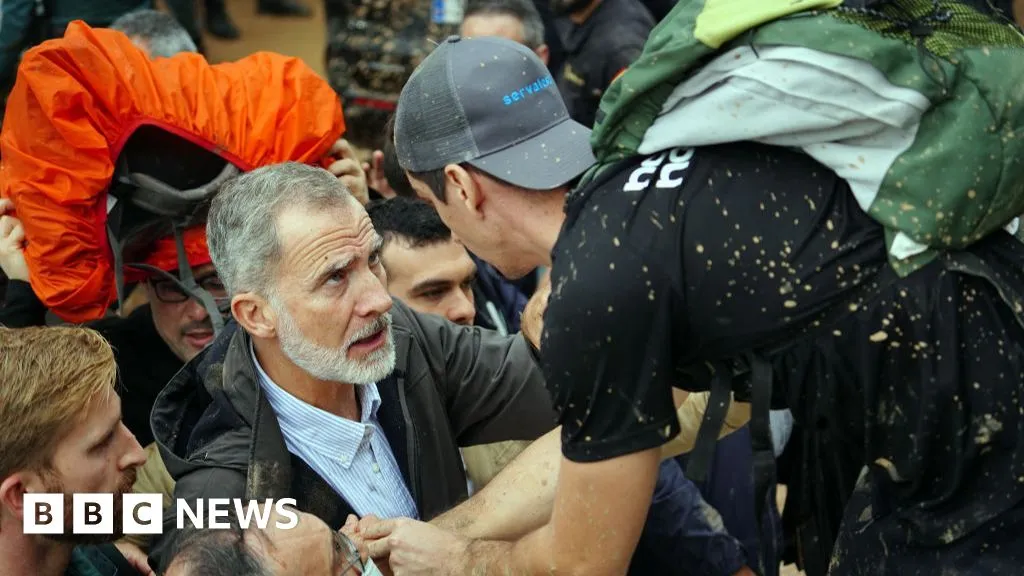Spain's king and queen pelted with mud in flood-hit Valencia
Spain's king and queen pelted with mud in flood-hit Valencia

www.bbc.com
Spain's king and queen pelted with mud in flood-hit Valencia

cross-posted from: https://lemm.ee/post/46537396
Spain's king and queen pelted with mud in flood-hit Valencia

Spain's king and queen pelted with mud in flood-hit Valencia

cross-posted from: https://lemm.ee/post/46537396